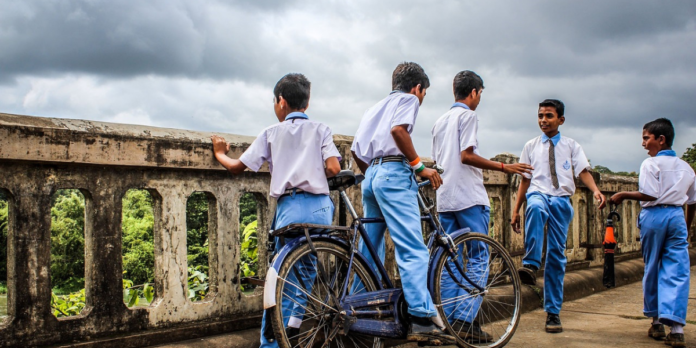There is no denying the fact that education has a big role in shaping an individual’s personality and developing the society and country at large. India has registered good growth in the literacy rate in past few years. But having said that, it is not able to be in sync with the quality of education that is needed in the modern times. Going a step further, we can ponder on rural communities and the impact of quality education in those areas.
Table of Contents
Importance of Rural Education
According to statistics, nearly 69% of India’s population resides in rural areas. Therefore, it is extremely important to provide education in rural communities. This entails developing schools and imparting knowledge and education to the rural children. These continuous efforts would lead to healthier, better and sustainable future. A good rural education can result in healthy outcomes, enhanced quality of life and an improved overall complete human development for the people and country.
A recent survey report titled the Annual Status of Education Report (ASER), more than half of the students studying in rural schools are incapable of studying even a second standard textbook and solve a simple, basic maths question. This is a shocking finding that depicts the huge divide between rural and modern education in India.
There are various reasons that have resulted in the crippling of rural education in our country.
- Inadequate number of schools – You would be surprised to know that despite a huge chunk of population residing in the rural areas, this part of the country is still suffering from insufficient number of schools. This coupled with the issue of schools located at a great distance forces the parents in rural areas not to send their children to faraway schools, thereby depriving them of education.
- Lack of cost effective and pocket friendly schools – People living in rural areas can not afford to spend a lot of money on education. Their limited income is consumed in the basic survival. Lack of pocket friendly government schools discourages parents from sending their children to the schools.
- Insufficient infrastructure – Most of the schools developed in the rural areas suffer from poor infrastructure, including lack of qualified and well-trained teachers. This is a big factor that results in poor quality of education imparted to the students.
- Low awareness levels – People living in rural areas do not focus on education and henceforth sending their children to school doesn’t fit in their priority. Since the parents are themselves not educated, they do not lay any emphasis on their kids’ education as well.
Improving Rural Education
There are various micro and macro lacunae in the rural educational institutions. The key here is to ameliorate the rural education system by commencing smarter and modern techniques and practices. These would help the children living in rural areas to come at the same platform as that of living in urban areas.
- Setting up more schools in rural areas – Many parents living in rural areas avoid sending their kids to schools as there are not schools near their homes. So, to ensure that rural kids go to school, the government and policy makers must make a conscious effort to set up enough schools where kids can study at no/nominal fee.
- Integrate technology and education – The world is moving at a very fast pace. Therefore, it is vital to focus on technology and computer sciences. In a digitally growing era, it is necessary that children must understand and be aware of technology and its usage. This would not only make them tech savvy but also develop an interest in education and schooling.
- Education beyond classrooms – Education is not confined only to books and classrooms. It is important for the child to be aware of the world around him/her. Therefore, they should often be taken out sometimes to understand the society. This exercise will make them understand and relate to the information imparted in the books in a holistic and better way.
- Emphasis on conceptual and practical learning – There was a time when cramming books was considered as studying. Not anymore. Modern day education is about practical and conceptual learning. It lays emphasis on the application of the learning. It can be understood only when the concepts are clear.
- Incentives to students – Midday meal is a great initiative from the government to encourage students from the rural areas to attend school. More such schemes and programmes are needed to facilitate students and their parents towards good education.
There is no denying the fact that rural education is extremely important for the development and growth of the nation. There indeed is also a gap between the rural and urban education in India. However, with an honest will and concrete efforts we can bridge this gap and build a common dais with education playing the role of unifying bond across the nation.
🔥336














